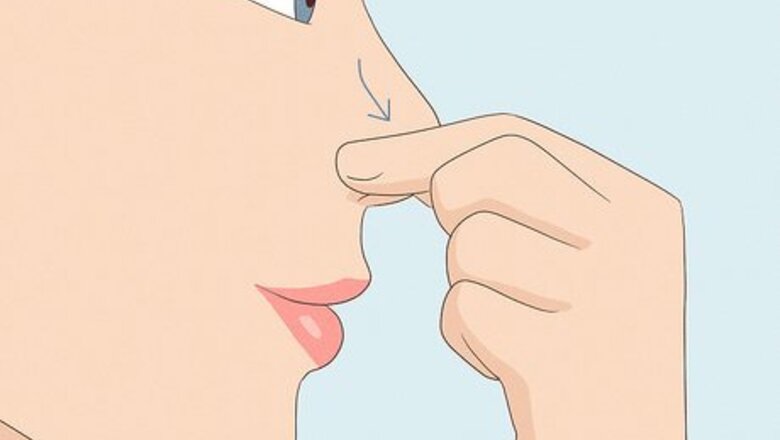
views
X
Trustworthy Source
Harvard Medical School
Harvard Medical School's Educational Site for the Public
Go to source
Thankfully, there are plenty of quick and easy ways to open up these tubes and pop your ears—and we’re here to walk you through them. Read on to see if any of these remedies do the trick!
- Get your ears to pop with the Valsalva manuever (where you pretend to blow your nose).
- Force yourself to yawn or swallow to encourage your ears to pop. Chewing gum and sucking on hard candy can help with this.
- Try the Toynbee manuever, where you pinch your nose while swallowing. This combination can force your ears to pop.
- Prevent your ears from getting blocked on an airplane by chewing gum, wearing earplugs, or staying awake at the beginning and end of the flight.
Valsalva manuever
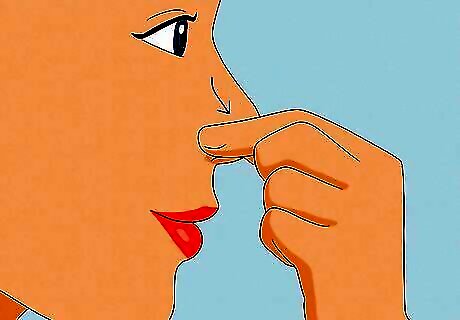
Pretend to blow your nose to encourage your ears to pop. While keeping your mouth closed, gently pinch the end of your nose with your fingers and exhale through your nose (as if you were blowing into a tissue). This process creates pressure that makes your ears’ Eustachian tubes open, which creates a “popping” sensation. Try to be gentle as you do this—the Valsalva maneuver doesn’t need to be forced.
Toynbee manuever
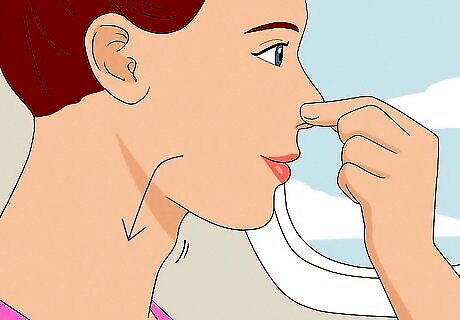
Swallow while holding your nose to help equalize your ears. While pinching the bottom of your nose, swallow a little bit of saliva. This encourages your Eustachian tubes to open up, which may create the popping sensation that you’re looking for. You can also try the Lowry technique—this is a combination of the Toynbee and Valsalva maneuver, and involves both swallowing and exhaling while holding your nose.
Yawn
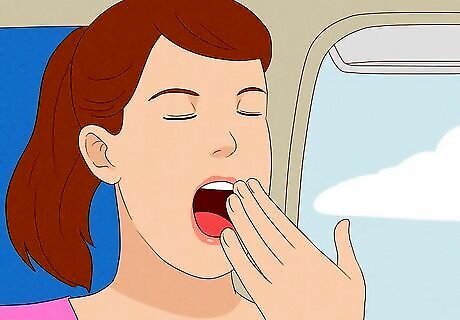
Yawning helps the Eustachian tubes in your ears to open up. Open your mouth about as far as you would to say "ahhh," and then attempt a yawn. Keep opening your mouth slowly (with your mouth in an "O" shape) until you break into a full yawn. Feel free to stop once you feel your ears pop. You’ll know when pressure rebalances—not only will you hear and feel a pop, but you’ll also hear more clearly than you did when your ears were clogged.
Chew gum
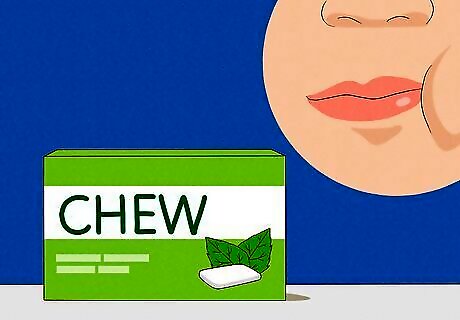
Chewing gum forces you to swallow spit, which helps your ears pop. When you chew something (like a piece of gum), your mouth creates extra saliva, which forces you to swallow. The swallowing motion gets your Eustachian tubs to open, equalizing the pressure between the inside and outside of your ear. Start chewing a stick of gum when you know you'll be dealing with altitude changes, and head the blockage off at the pass. You can also chew gum to prevent your ears from becoming stuffed up.
Try hard candies or lozenges

Sucking on candy creates saliva and encourages you to swallow. Just like with gum, sucking on a hard candy (like a mint or lozenge) gets your mouth to produce more saliva, which forces you to swallow (and open your Eustachian tubes). Bring a small stash of hard candy on your next flight (or trip that has a lot of altitude changes) to help relieve any potential ear pressure.
Drink water
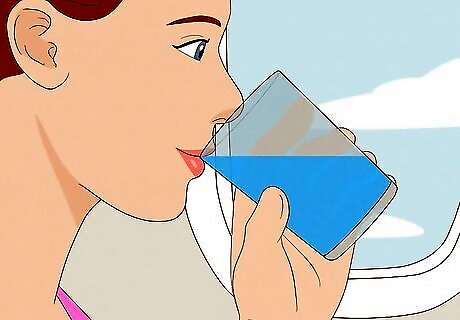
Any type of swallowing motion can get your ears to pop and feel better. Take a sip of water (or the non-caffeinated beverage of your choice), which gets your Eustachian tubes to open up. If your ears don’t pop at first, take a few more sips of your drink and see if that helps. Drinking lots of water on a flight helps keep your nasal mucus from getting too thick (which makes your Eustachian tubes more likely to get blocked up).
Frenzel maneuver
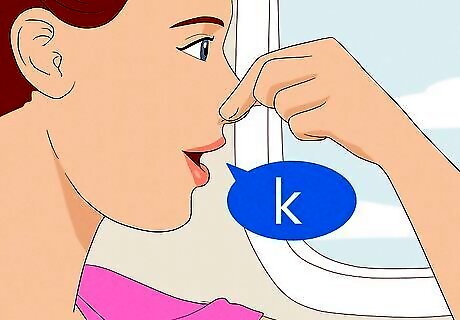
Pop your ears by holding your nose and making a “k” sound. As you pinch your nostrils shut, try saying the beginning of the word crow or cow. The hard “k” sound may encourage your ears to pop and provide some relief. Words like cake, cop, cold, carrot, and kid can also help you make that hard “k” sound.
Take decongestant medication
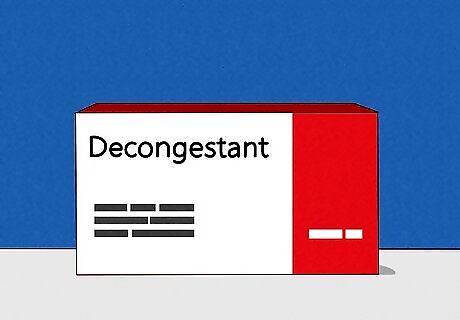
Decongestant medication helps your ears pop when you’re feeling ill. When your nose is all stuffed up (like when you have a cold), the mucous membranes in your ears and nose become inflamed—this makes it more challenging to “pop” your ears and relieve any uncomfortable pressure. To help with this, take an OTC nasal spray or decongestant pills to help make your mucous membranes less swollen. If you’re preparing for an upcoming flight, take or use the OTC decongestants about a half hour before boarding your flight. Try to use nasal sprays sparingly; if you use them too often, they can actually create more congestion. Thankfully, decongestant pills don’t carry this risk.
Use earplugs
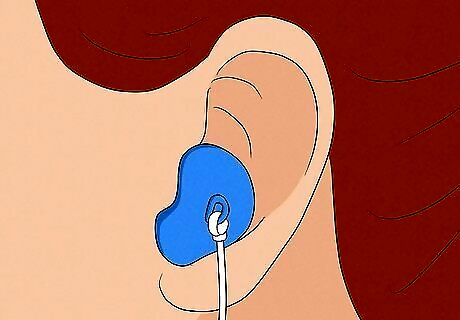
Ear plugs help your ears stay equalized during a flight. After you’ve seated yourself on the plane, stick in a pair of filtered earplugs. They’ll help your ears feel more comfortable as you take off and land, though they won’t eliminate the pressure completely. You’ll still need to pop your ears if you wear earplugs, but your ears may feel a little more comfortable overall.
Stay awake during parts of your flight
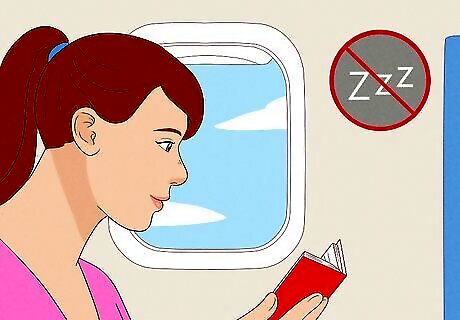
Staying alert makes it easier to manage the pressure in your ears. The biggest pressure changes happen at the beginning and end of a flight. So, make sure that you’re alert and ready to pop your ears while your plane is taking off and landing—this helps your ears feel more comfortable in the long run.
Visit your doctor
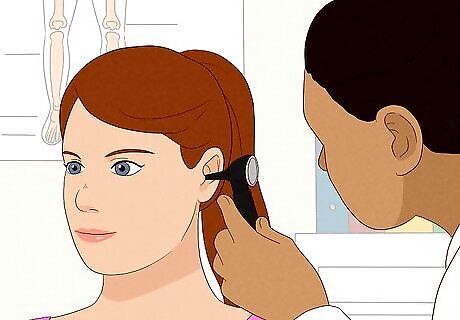
Your doctor can take a closer look and make sure that everything is okay. It’s important to visit a doctor if you notice other concerning symptoms, like continued blockage, ear pain, dizziness, bleeding, and ear drainage. At your appointment, your doctor might perform a test (like an ear pressure or hearing test) to see if something more serious is causing the issue. Your doctor can check and see if you have an infection that’s causing a blocked Eustachian tube. If you do not have an infection, your doctor can guide you in the right direction as to what to do next. Allergies, inflammation, or even Temporomandibular Joint Dysfunction (TMJ) can possibly cause your ears to not pop.

















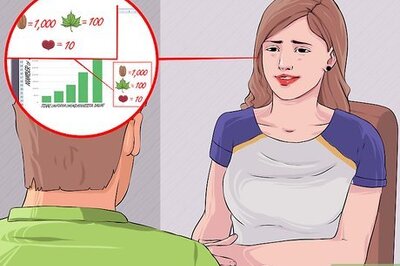
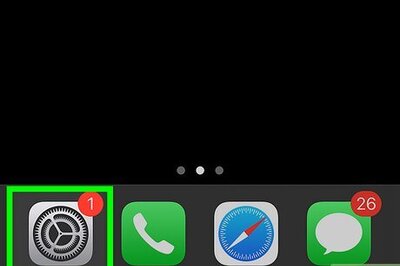
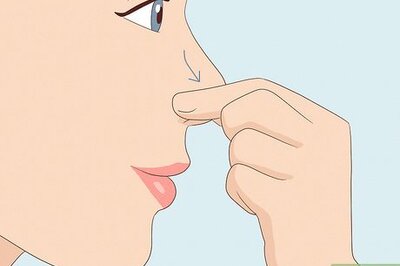
Comments
0 comment